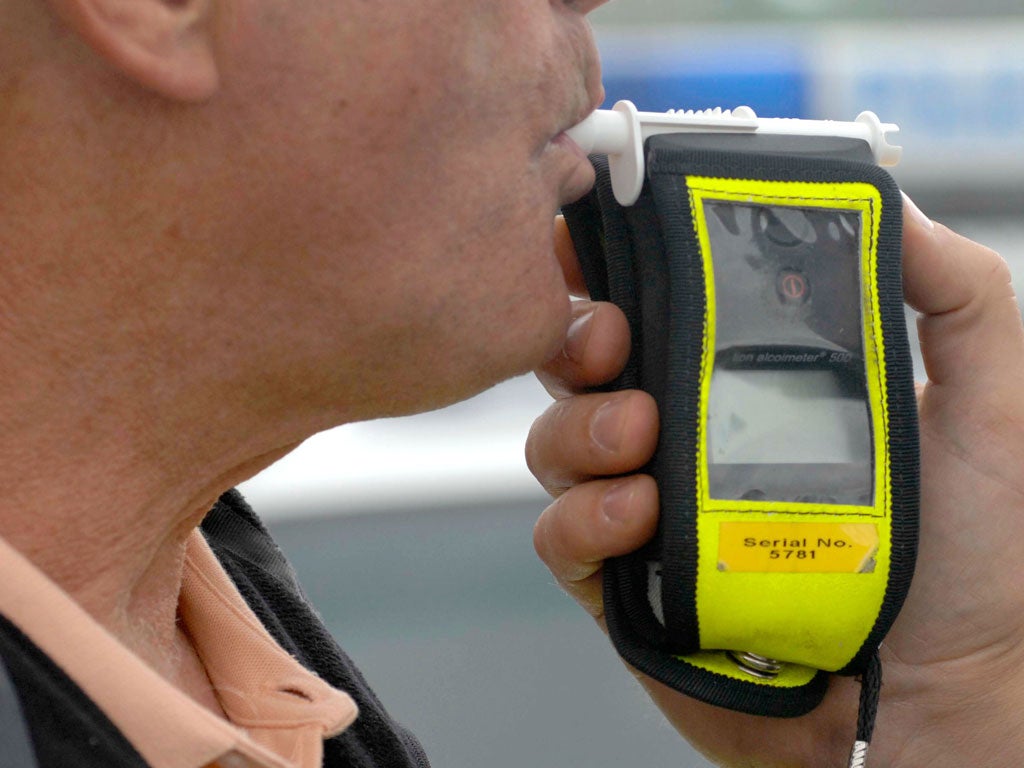Drink-drive limit Scotland: What about the rest of the world?
Drink-drivers in Germany can be forced to take compulsory psychological assessments

Scotland has slashed its drink-drive limit, meaning drivers who have less than a pint could be breaking the law.
The Scottish Parliament unanimously approved the reduction from the UK-wide 80mg of alcohol per 100ml of blood to 50mg, in line with several European countries.
It means motorists crossing the border could be legal in England and arrested across the border.
But what about the rest of the world? While Germans can be forced to go through psychological assessments if caught drink-driving, Colombians get banned for a decade and an offence in India could land you in jail.
Most European countries strictly enforce a limit of 50mg, which is cut to 20mg or 30mg for drivers holding licences for under two years or those carrying people on public or commercial transport.
Many places, including Croatia, have a zero tolerance policy for young drivers and some countries including the Czech Republic and Hungary ban alcohol completely for motorists.
Laws in most nations impose harsher penalties for higher concentrations of alcohol or repeat offending. In Germany, for example, anyone caught drink-driving within a decade of a previous offence has a minimum fine of €1,000 and drink-drivers may have to undertake compulsory psychological assessments.
The nationwide limit for the US is 80mg but the "driving under the influence" or DUI offence does not require someone to be over a specific blood alcohol level.
Commercial drivers have a lower limit of 40mg and many states impose lesser penalties for anyone driving over 50mg and there is zero tolerance towards motorists aged under 21.
Some South American countries, for example Uruguay, enforce variable limits depending on a drivers' age and experience.
Colombia has the toughest penalties, with drivers found with 20mg of blood alcohol having their licences suspended for a year and having to carry out community service and pay a fine. Licences can be revoked for a decade or life.
Some African countries, including Malawi and Ethiopia, have no legal limit for drink driving, while others have a zero tolerance policy with harsh punishments.
South Africa exerts harsher penalties on drivers carrying passengers and motorists in control of large commercial vehicles.
Laws in Asia vary dramatically - from Pakistan where there is no set limit to Kuwait and Iran where alcohol consumption is banned for drivers and non-drivers alike.
India imprisons first-time offenders for up to six months and imposes harsh fines in an effort to combat high numbers of road deaths.
Australia has a zero-tolerance policy for inexperienced drivers in most states and a nationwide limit of 50mg for older drivers. Drink-driving is banned for motorists aged under 20 in New Zealand but the limit otherwise is 80mg.
As the effects of alcohol depend on a person’s gender, weight, metabolism, drink, stress levels, medication, age and what the person has eaten,
experts caution that there is no way of knowing when you can safety driver after drinking.
Almost eight in 10 Scottish motorists support the reduction, according to a survey by the RAC, which found that 38 per cent of UK motorists living outside Scotland believe the alcohol limit for driving should be cut.
Almost a quarter of the 2,607 drivers surveyed would prefer to go a step further and have a total ban on consuming any alcohol.
The president of the AA, Edmund King, said the differing limits north and south of the border should not be a problem if people follow the years-old advice not to drink at all if they are driving.
“It is far too dangerous to try to judge how much you can safely drink whether the limit is 50mg or 80mg,” he added.
Additional reporting by PA
Subscribe to Independent Premium to bookmark this article
Want to bookmark your favourite articles and stories to read or reference later? Start your Independent Premium subscription today.

Join our commenting forum
Join thought-provoking conversations, follow other Independent readers and see their replies